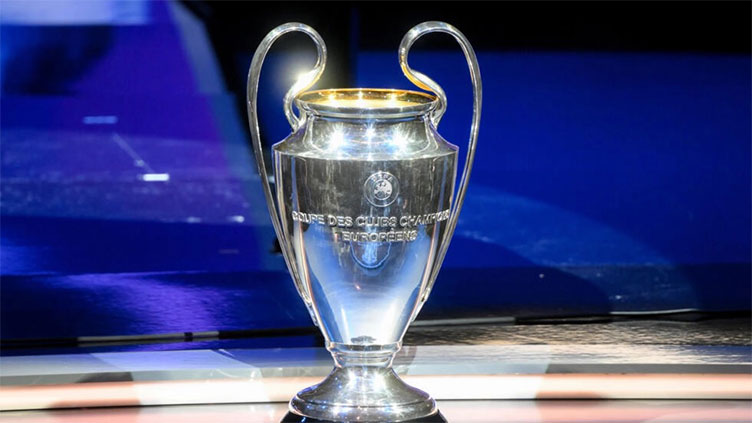Bayern to face Man Utd in Champions League group stage, Newcastle draw PSG

Sports
Manchester United will face the Bayern Munich of Harry Kane in this season's Champions League.
MONACO (AFP) – Manchester United will face the Bayern Munich of Harry Kane in this season's Champions League while Thursday's group stage draw also placed Paris Saint-Germain and Newcastle United together.
Bayern and United will be favourites to advance from Group A, which also includes FC Copenhagen and Galatasaray, the Turkish champions.
The ties between the Bundesliga champions and the Old Trafford club will evoke memories of the most famous meeting between the sides, in the 1999 Champions League final won 2-1 by United after a remarkable late comeback.
England captain Kane, who recently moved to Germany from Tottenham Hotspur, tweeted a picture of the finalised groups on Thursday, saying: "Can't wait for this."
Group F looks to be the toughest of all with Saudi-owned Newcastle facing AC Milan and Borussia Dortmund as well as Qatar-backed PSG.
Newcastle are appearing in the Champions League for the first time in 20 years and their lack of recent pedigree in Europe's elite club competition meant they were left lurking dangerously among the sides in pot four for the draw.
Having held on to Kylian Mbappe, French champions PSG will be expected to advance to the last 16 but Newcastle will hope to finish ahead of Dortmund and a Milan team that got to the semi-finals last season.
"It's an extremely tough group, we can't hide from that, but hey, we take it," Dortmund president Hans-Joachim Watzke told Sky Germany.
"We hope we can achieve something exceptional."
Fresh from winning the Champions League last season for the first time, City could hardly have asked for a kinder draw as they will take on RB Leipzig, Red Star Belgrade and Young Boys in Group G.
Pep Guardiola's side can be expected to rack up the goals against the champions of Serbia and Switzerland, while City hammered Leipzig 8-1 on aggregate in the last 16 last season.
REAL MADRID TO FACE NAPOLI
Back in the Champions League for the first time since 2016/17, Arsenal will face Europa League winners Sevilla, 1988 European Cup winners PSV Eindhoven and Lens of France in Group B.
PSV, who beat Rangers 7-3 on aggregate in the play-offs to reach the group stage, faced Arsenal in last season's Europa League.
Lens are back in the Champions League for the first time in two decades but they have history with Arsenal.
The French side beat the Gunners 1-0 at Wembley in the Champions League group stage in 1998, while Arsenal came out on top when the teams clashed in the UEFA Cup semi-finals the following season.
Real Madrid, the record 14-time champions who won the trophy in 2022, were drawn with Italian champions Napoli in Group C, which also features Braga of Portugal and Champions League debutants Union Berlin.
Madrid coach Carlo Ancelotti spent 18 months in charge of Napoli between 2018 and 2019.
Meetings between the teams have been rare, but Real beat the Napoli of Diego Maradona in the first round of the old European Cup in 1987.
Reigning Spanish champions Barcelona will take on Porto, Shakhtar Donetsk and Royal Antwerp of Belgium in Group H.
Antwerp's only appearance in Europe's elite club competition before this season came in 1957/58, when they lost to Real Madrid in the first round.
Ukrainian champions Shakhtar will play home games in the competition this season in the German city of Hamburg.
Last season's runners-up Inter Milan are in Group D with Portuguese champions Benfica, Red Bull Salzburg and Real Sociedad of Spain.
Scottish champions Celtic will face Feyenoord, Atletico Madrid and Lazio in Group E.
Feyenoord, the Dutch champions, beat Celtic in the 1970 European Cup final.
The first round of matches will be played on September 19 and 20, with the group stage concluding on December 13.
This is the last season of the group stage under the current format, which has been in place for two decades.
Next season UEFA will introduce an expanded group stage featuring 36 teams, up from the current 32, with every club playing eight matches instead of the current six in a format known as the "Swiss system".

